Remembering Gandhiji in critical times
'During my nearly three decades of military service, both in war and peace, I have usefully drawn upon Gandhiji's storehouse of wisdom.'
'When military intelligence jobs require tightrope walking on the edge of moral and ethical dilemmas, I have looked up to Gandhiji,' notes Colonel R Hariharan (retd).
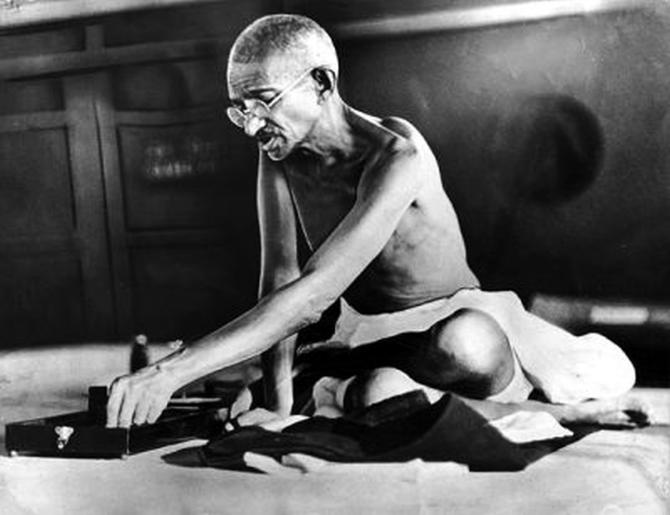
Rajghat in New Delhi will come alive with songs of Ramdhun and Vaishnava Janato on January 30 in memory of Mahatma Gandhi where he was cremated 73 years ago.
Political neta sof different hues would sprinkle flowers at his memorial, dispense homilies to suit their current political idiom and disperse to do their netagiri.
On other days, Gandhiji is remembered by Delhi Tourism circuit buses which unloads tourists to ogle at the eternal flame burning at the Mahatma's samadhi.
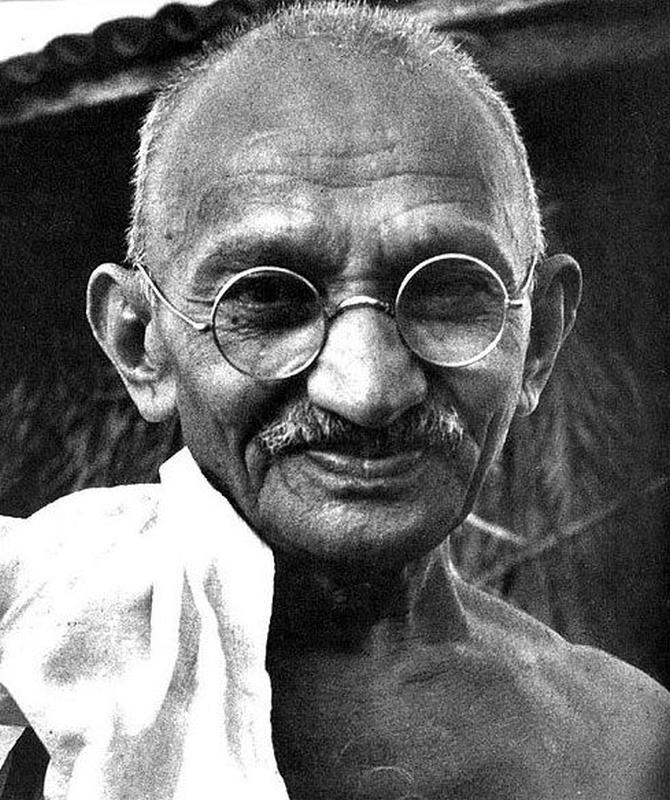
2020 was a difficult one. Not only for India but everyone in the world, coming to terms with the pandemic.
Perhaps, 2020 will go down globally as the biggest year of a public health disaster, after the bubonic plague in 1347 killed 20 million people in Europe alone in the five years that it lasted.
Covid has played havoc not only with peoples' health, but the economy, trade, livelihood, employment and lifestyles everywhere.
For India, there were added woes of the continuing state of confrontation and collusion on India's borders with both Pakistan and China.
On the home front, India did not cover itself glory, despite the government's efforts to improve the quality of life.
Power politics of the caste and communal divide continued to bleed social unity of the nation, needed to face tough times.
Only a fortnight before Gandhiji's last birthday on October 2, 2020, the nation was hotly debating an act of national shame -- the gang rape and killing of a Dalit girl by upper caste men in Hathras, in Uttar Pradesh and the Kafkaesque cover-up of that followed the crime.
The events that followed showed that callousness has eaten into not only our politics and administration, but society as well.
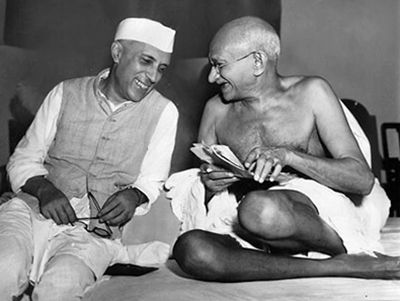
Such sordid events mark our calendar with monotonous regularity, not only in UP, but other states ruled by the Opposition as well.
We frequently keep seeing gory images of these events, airbrushed to protect viewers' sensitivity, on the visual media.
We keep watching finger-pointing political leaders, raucously debating the issues on news television discussions, aptly living up to the description 'talk show' gingered up to flaunt their TRP ratings.
Compassion is absent or forgotten in all the high drama. This shows that it is not acts of pure evil that have changed. We have changed. We have lost the sensitivity of our souls that was once nourished by Gandhiji's thoughts.
If Gandhiji had been alive, he would have held himself responsible for the Hathras tragedy and probably gone on a fast to atone his feeling of guilt.
Will it work today? Probably not; even if Rahul Gandhi, who made a yatra to Hathras, had gone on a fast just as his namesake did, he would have been laughed out by the people.
Because, all Gandhis are not Gandhiji, who wore his beliefs on his non-existent sleeve, and practised what he believed in.
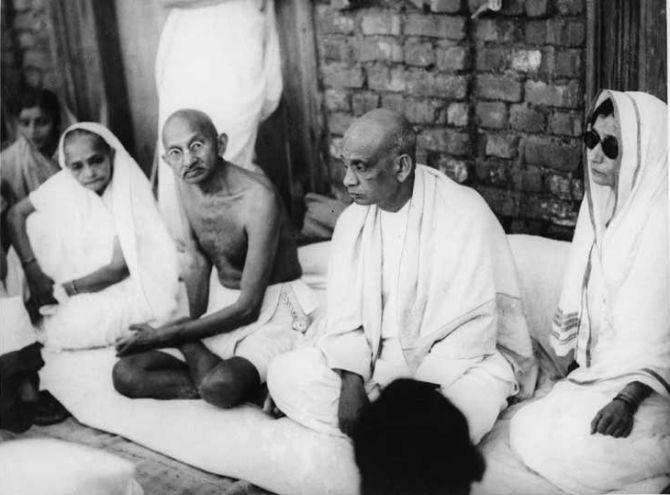
Gandhiji used to reflect the conscience of the common man because he could relate to them in simple, moral and ethical terms, interspersed with some religious wisdom familiar to the people.
He can neither be copied nor comprehended easily. Though the Mahatma's words are simple to articulate, they are difficult to imbibe philosophically or to practise them politically.
Many of us who grew up when he dominated national political thought attribute it to his uniquely esoteric Indian construct: The use of Satyagraha and Ahimsa in his anti-colonial struggle.
This is perhaps what perplexed the Anglo Saxon minds of India's colonial rulers to politically pin him down. They adopted the easy option of incarcerating Gandhiji as and when he got under their skin.
In the first three decades of Independence, politicians found it fashionable to quote Gandhiji at the drop of a hat.
One reason for the fading away of Gandhiji from the political narrative is the rise of Indira Gandhi, conveniently with the same surname.
She made a big difference to brand Gandhi because she provided a more virulent and politically smart and 'clever' alternative to the original version of humility in political conduct the man, clad in a loin cloth.
Her rise to power saw sleight-of-hand political rhetoric replacing the moral high ground in governance and ethics in national conduct of leaders because her version suited their objectives.
Starting with her, the Gandhi dynasty took over, from Indira to Rajiv, to the infamous Sanjay to the later day claimants including Sonia, Rahul and Priyanka.
Too many Gandhis now cloud the horizon. They have diluted even the remnants of Gandhian pretensions in the Congress party used to have.
The political trade name of the one and only Gandhiji, we all and the world knew, has irretrievably been pushed aside.
Sadly, Gandhiji is reduced to the icon that stands at crossroads in most towns.
Gandhiji standing on a pedestal mutely watching, forgotten by the public, remembered only by the crows that perch upon him, is an eloquent testimony for the present state of Gandhian affairs.
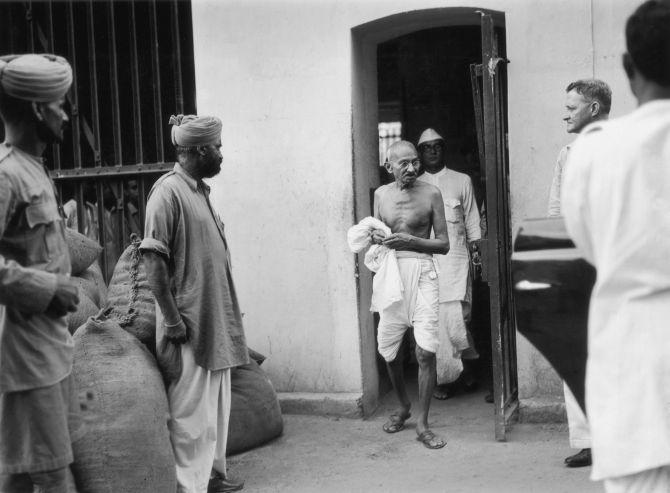
Juxtaposed against innumerable instances of political and moral dilemma in Gandhiji's life, I realise that for allowing the Hathras tragedy, the devil is in all of us.
We have allowed our political leaders and parties to view governance purely in political terms.
This is not the first time such gross disregard for the right to life of ordinary people has been shown, nor it will be the last.
How do we change that? The future looks very gloomy.
'Be the change you wish to see in the world,' Gandhiji said. Whenever I read these words, I feel guilty.
How should I change my attitudes to the unsavoury happenings around me, as much as I expect the rulers to change theirs? It is extremely difficult to think of this, in the midst of the gloom and negativity abounding in Covid times.
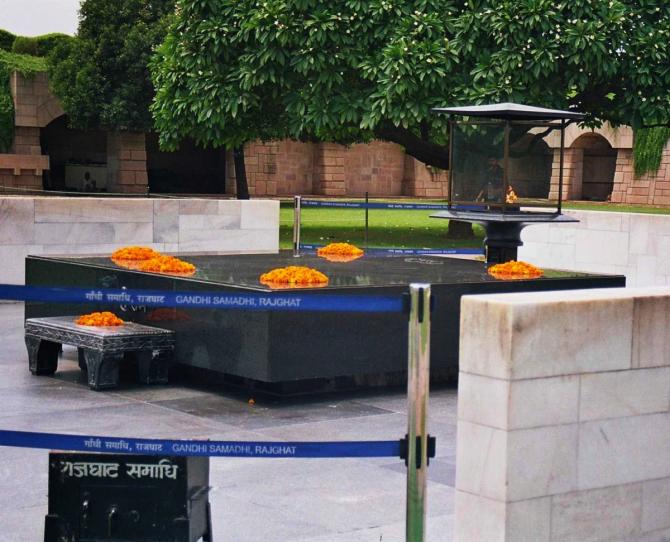
Gandhiji's thoughts imbibed in our family in the early years of life come to my mind, particularly, in times of crisis.
During my nearly three decades of military service, both in war and peace, I have usefully drawn upon Gandhiji's storehouse of wisdom.
When military intelligence jobs require tightrope walking on the edge of moral and ethical dilemmas, I have looked up to Gandhiji.
He had a 'mantra' for every occasion. I find he had thought about it in Hind Swaraj , the booklet he wrote in 1909:
'The fact that there are so many men still alive in the world shows that it is not based on the force of arms, but on the force of truth or love.'
'Therefore, the greatest and most unimpeachable evidence of the success of this force is to be found in the fact, that in spite of the wars of the world, it still lives on.'
In the same booklet, he said: 'Unrest is, in reality, discontent. This discontent is a very useful thing. As long as a man is contented with his present lot, so long is it difficult to persuade him to come out of it. Therefore it is that every reform must be preceded by discontent. We throw away things we have, only when we cease to like them.'
This is the charm of Gandhiji in provoking our mind to look around and put things in perspective to survive gloomy times.
I find no point in depending upon zodiacal charts, gurus, babas, fakirs and their chants and talisman for explaining the situation created by us.
Let us get ready to face the reality as they are and act justly to resolve them as a nation; there is no easy way.
